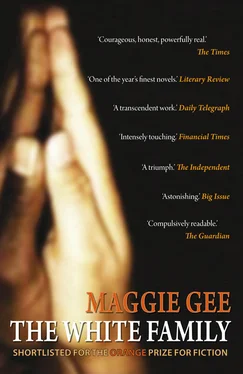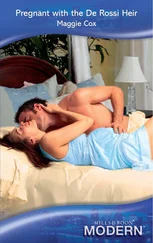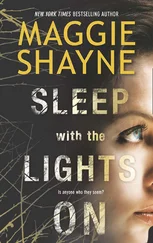The bloody coloureds, that’s all they care about, down at the town hall these days. It’s because of them they took our uniforms away. We had proper uniforms, till a few years ago, uniforms you would call uniforms, nice black serge, very warm in winter, with silver buttons and a decent peaked cap and the badge of the Parks Service on the front. Those uniforms were a godsend to us. One look and people could see what was what. So they didn’t argue the toss, did they?
The old days. The good old days.
There weren’t any coloureds when I was a kid. It was just a normal part of London. We were all the same. We were all one. No one was rich. We stuck together …
May says I do too much looking back. But sometimes I don’t like to think about the future.
Sometimes I think our world is ending. All the things we believed in, gone.
But it’s me that’s ending. Me that’s going .
Nonsense. I’ll be back in the Park next week. Make sure the gardeners haven’t been slacking. Good boys, all of them. Decent boys. When I started in the Park, I was young, so young. Younger than these young boys I work with.
Alfred still felt as young as any of them. He still walked fast, you had to walk fast to keep the whole Park covered on your own (would he still walk fast when he got out of here? Of course he would; in his head he did; in his head he walked up and down the ward, keeping an eye on things, touching his cap.) He still felt young, when there was no one around he would even have a little dance, in his hut, when the radio played one of the good old tunes — but he knew his children didn’t think he was young. Parents were people who had never been young.
( I wish I’d had more time to play with the kids.
I wish I hadn’t been so hard on them .)
I was young, and hopeful that the world would get better. We were sure there would be miracles, after the war. I thought we’d all walk into a golden future.
Where did it go? What happened to our future, the one so many people suffered and died for? There was something wonderful we all meant to share, after going through so much together. But it just … evaporated. That was it. The free orange juice, the milk, the ration-books, the things we had in the nineteen fifties. The National Health spectacles; they were free, little round wonky ones that sat on people’s noses. Pale blue and pink ones for the kids. The National Health. It was for everybody. That was a miracle, we all thought so. Nit shampoo and aspirin when you needed them. And then they began to charge for prescriptions, pennies, at first, then just a few bob, and now they come asking for paper money, and most people just do without. And yet it’s still here. Just about still there. The National Health Service, waiting for me. Even if I’ve left it a bit late to ask.
Was it to this ward that my life was pointing ?
Alfred closed his eyes against the glare of the lights. Visiting time would soon be beginning. He mustn’t drift off, he looked up again, but he couldn’t lie staring at the bar of fluorescent, he turned on his side for a moment’s respite, propping his eyelid on the slope of the pillow, closing the eye that faced the light, but the pillow was blinding, too soft, too white, he’d liked a flat pillow ever since the war when they’d slept on the concrete floor of the shelter, but that was all over, things had gone soft, softer, softness, sucking him down …
And Alfred slept, despite himself. Slept until a quiet coughing woke him.
He was rather put out to see Thomas Lovell. ‘I thought you’d be May,’ Alfred said. ‘Are you early, lad? If visiting’s started, May would be here.’
He didn’t like the feeling of being looked down on. They all came gawping, once you were ill. And he wanted May. He wanted her badly. What the hell was she playing at, not being here? He craned his neck round to look at the doors. Typical woman, never there when you needed them. Though to be fair, she had always been there, ever since they were little more than kids together. When he lost his mum. When his brother got cancer. May nursed his brother until he died … But now, when Alfred needed her more than ever, she’d skipped off and left him. Damn her, damn her –
Just at that moment the doors flapped heavily and May hurried through, screwing up her eyes, looking for him, peering, anxious, breaking into a beam when she saw his face, and all his anger leaked away into relief. She was wearing her smart blue coat for once. Then he saw how pale and tired she was.
He hadn’t any time to make her welcome. There was something vital to talk about. He couldn’t leave it to the doctors to tell her. Why ever did he think he would? — In any case, he needed comfort. Only May could comfort him.
‘Thomas is here,’ he said fretfully, as if she couldn’t see that for herself. ‘I thought you’d get here early, May.’ But they took each other’s hands, like magnets, halves of a whole springing back together.
‘I’ll leave you for a moment,’ said Thomas, after a pause. ‘I’ll take a stroll along the ward.’
‘Thomas,’ said May. ‘You’re a good boy.’
And he was gone; tall and young. Leaving the ward with that casual ease. How Alfred longed to follow him.
They looked at each other, and both guessed at once the other knew what there was to know.
‘Have they told you, then —?’Alfred began, and May at the same moment stumbled through ‘Did they say anything? Did the doctor come —?’
She sighed slightly with pain as she rotated her arm, the one which had the worst arthritis, to put it gently round his shoulders, and she stroked his head, she touched his bare scalp, she had never got used to the bareness of his scalp, how naked it felt, how intimate.
‘They told me Thursday,’ she said. ‘On my way out. I haven’t slept a wink since. Oh Alfred, love … I can’t believe it.’
He lay there unable to speak for an instant. Their two skulls touched; they were one in grief. Their hands squeezed gentle and unconscious as a heartbeat. Somehow her love would keep him alive. But then he thought, nothing can keep me alive, if the doctors give up and say I’m a goner. She was sniffling, quietly, like a little dog, a heartbreaking sound like the puppy they had when they were first married, a black-and-white mongrel which got run over. He’d had to carry it into the house. He was the man. It was up to him.
I don’t want to leave her, he thought, suddenly, it’s nonsense, how ever could we say goodbye? But he brushed the thought away. He had to be strong.
‘What are you crying for?’ he asked her. ‘People will look,’ and from the corner of his eye, he saw Pamela clutching on to someone’s armchair, concentrating on her balance, one stop on her long hard journey back. Not that he cared about Pamela. Liked her, yes, no more than that; but you had to keep up appearances. He didn’t want May to let herself down.
‘Oi up, my darling,’ he said more kindly. ‘We haven’t got anything to cry about yet. I could go on for another ten years —’
But he saw from her face that she didn’t think so. Perhaps they told her more than me . That thought injected a brief spurt of anger.
‘It’s just that I–I need you, Alfred … I don’t want to be alone.’
Which moved him, because all their life together he’d known she longed to be alone. To get away from him and the kids and the housework and read her books and write her poems. But now in the end it seemed she didn’t. Which softened his fear, unreasonable, real, that secretly people would, well, be glad. That the kids didn’t like him, and nor did May. That he was somehow a burden to them.
‘I’m not going to leave you, May, darling. You’re …’
Читать дальше












